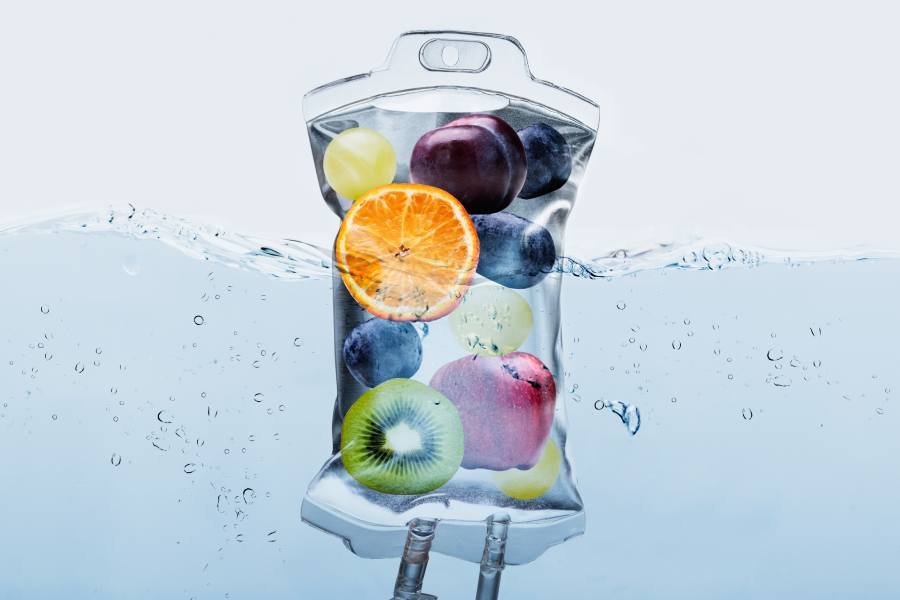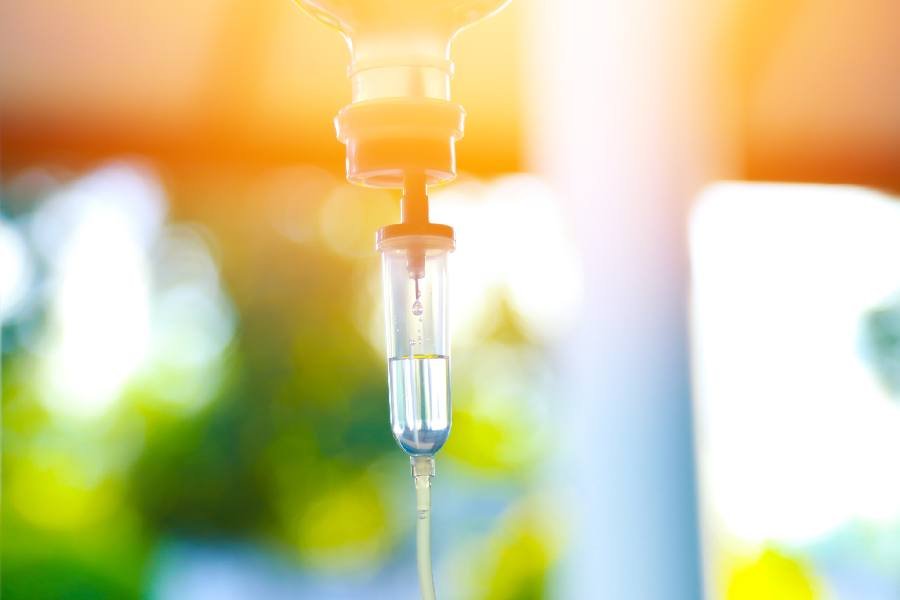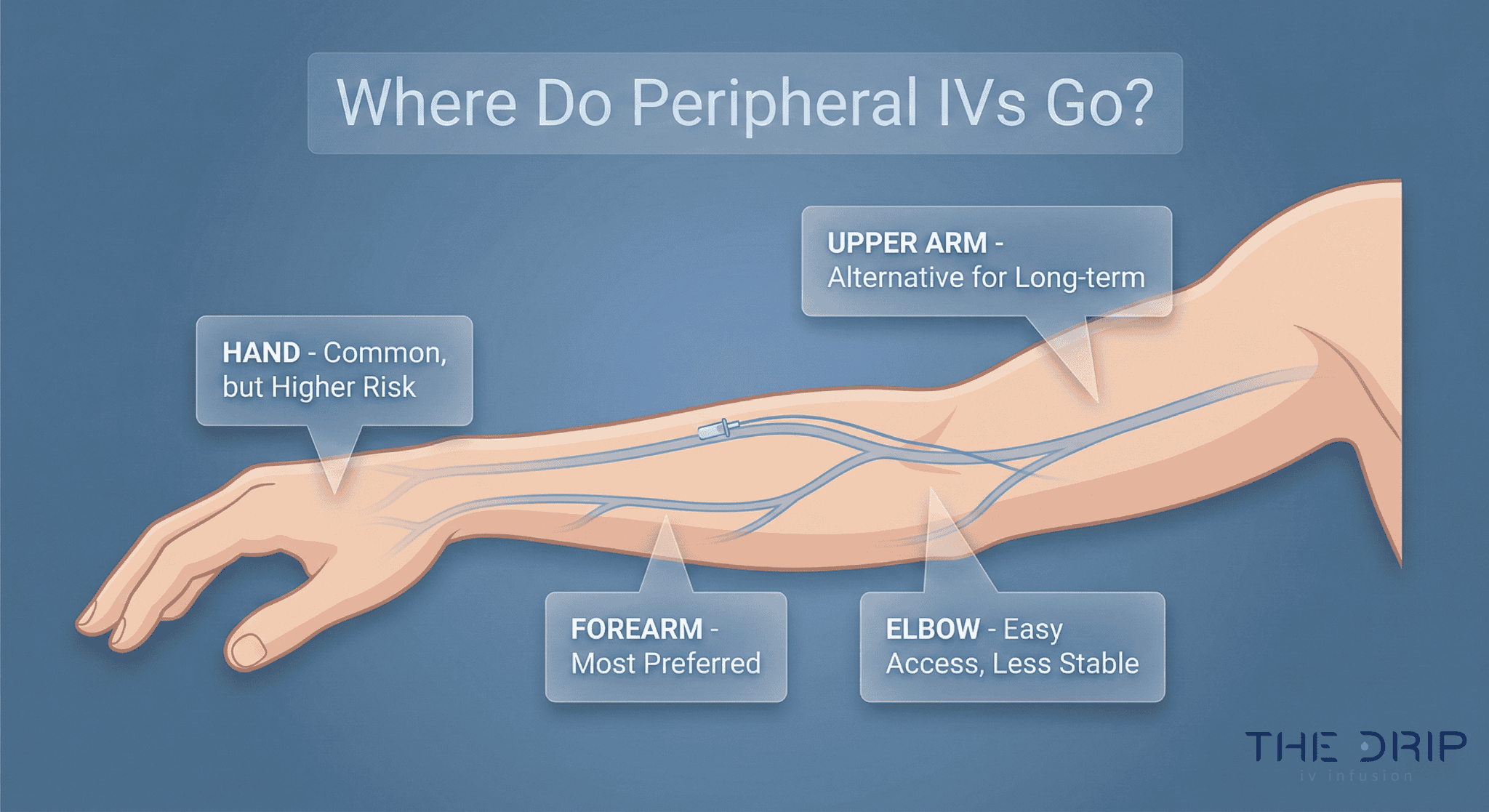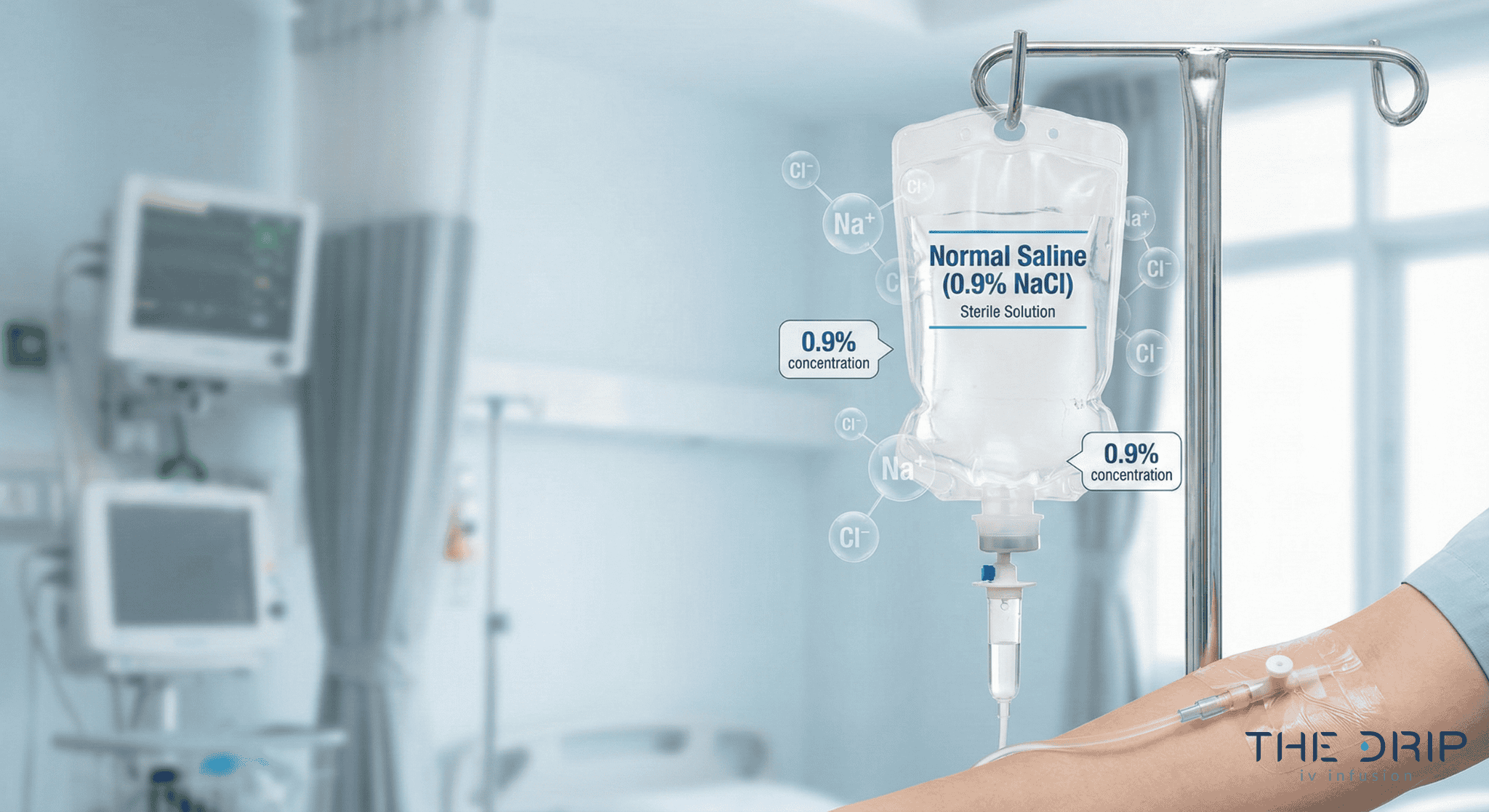The medical industry has evolved a lot over the years, and the technology that’s present today wasn’t there a few decades ago. IV therapy, or intravenous therapy, has existed for a long time now, but it wasn’t widely available in the past. Today, people in most parts of the world can enjoy its benefits. But, does IV therapy work? Is IV therapy effective?
If you have these doubts in mind, you have come to the right place. In this article, we will discuss if IV therapy works or not, and we will also talk about its benefits. Additionally, we’ll go over the risks associated with IV therapy to help you get a better understanding of this technology. So, without any delay, let’s talk about the effectiveness of intravenous treatment.

Source: shutterstock.com/ Photo Contributor: Numstocker
Does IV Therapy Work?
Yes, IV therapy does work, as long as the fluid contains the right ingredients based on your specific requirements.
The biggest factor that contributes to its effectiveness is the fact that it delivers the required nutrients directly into the bloodstream, and the patient’s body receives them quickly. Whether the patient needs a drug, vitamins, or electrolytes, the absorption won’t be slowed down by the digestive system.
Doctors consider IV therapy to treat or possibly prevent certain medical conditions. It may offer several benefits to the patient, which might make it an effective option. That being said, you should choose to get IV therapy only after consulting with a doctor, and you shouldn’t let an untrained individual conduct IV therapy on you.
If you don’t have a vitamin deficiency, and the doctor doesn’t recommend vitamin IV therapy, you shouldn’t get it just because a celebrity or social media influencer is promoting it.
If not administered correctly, there are several potential side effects of IV therapy, which we will discuss later. But first, let’s discuss the key benefits that IV therapy offers.
IV Therapy Benefits
A fast way to get essential nutrients into the body
Our body needs vitamins and minerals to function properly. While many dietary supplements available on the market may provide these essential minerals and vitamins, they don’t offer results as quickly as the Drip IV infusion.
If you take any oral supplement, the pill or capsule will first have to go through your digestive system. In this case, the nutrients will enter the bloodstream only after they are processed during digestion. Many of them may not be fully absorbed if you don’t combine them with a snack or a meal that’s high in fat, as some vitamins are fat-soluble.
IV therapy, on the other hand, removes digestion from the picture, and the nutrients don’t have to go through the digestive system. These nutrients may be immediately available for your body to absorb and utilize. Moreover, the enzymes present in the digestive system don’t break down or interfere with the nutrients. Your body will filter out the nutrients it doesn’t need and remove them.
This means that IV therapy is one of the fastest ways to get essential nutrients into the body. It may prove very helpful in certain conditions when the patient needs nutrients as quickly as possible.
A good source of natural energy
Have you ever tried those sugary energy drinks? If you have, you must be aware of the sudden energy spike and crash linked to them. The energy they provide doesn’t feel natural at all, and it doesn’t last for long. Well, things are different in the case of IV therapy.
IV therapy might provide the essential B vitamins and amino acids your body needs to survive and produce energy. These vitamins and amino acids include:
ALA (alpha-lipoic acid)
B-complex including all eight essential B vitamins
Vitamin B12
Vitamin B9
When your body receives these nutrients from IV therapy, the rise in energy levels feels natural, and energy drinks don’t even come close to it. This energy boost might improve your lifestyle quality and help you in day-to-day life.
A good source of immunity–boosting antioxidants
It’s important for you to ensure that your immune system is in check. IV therapy may help your body get antioxidants like vitamin C and minerals like zinc that help boost immunity.
Vitamin C might protect the body from free radicals that promote oxidative stress. You could get these antioxidants from oral supplements, but they will also have to go through the digestive system before making it to the bloodstream.

Source: shutterstock.com/ Photo Contributor: Andrey_Popov
Can support your weight loss journey
IV therapy doesn’t work like those weight loss pills available on the market, most of which contain unreasonably high amounts of caffeine. IV therapy may support your weight loss journey without causing jitters and sudden energy crashes.
The delivery of L-carnitine and other amino blends might help the body burn fat into energy. Several other nutrients present in the fluid might boost metabolism and help the body burn those extra calories to achieve good results.
While it may offer a helping hand, you won’t get the desired outcome if you don’t combine it with a healthy lifestyle and diet. If you eat healthy foods and work out regularly, it may help you lose those few extra pounds you’ve been struggling to lose. It might also help you maintain a healthy weight.
May promote cardiovascular health
You won’t experience this benefit every time, but depending on the nutrients you get from IV therapy, you may experience an improvement in cardiovascular health. L-arginine is an amino acid that helps relax blood vessels, and it might also lower blood pressure; however, it isn’t a replacement for medicines doctors prescribe to maintain blood pressure.
If your drip bag contains arginine, calcium, magnesium, and other amino blend, you may experience benefits related to cardiovascular health.
Can help treat dehydration
Many people get dehydrated because of excessive exercise or staying in the heat for too long without drinking enough water. There can be several other reasons for dehydration. Patients undergoing surgery may also get dehydrated, as they aren’t able to eat or drink. IV fluids are known for preventing and treating dehydration.
IV therapy might provide rapid recovery from dehydration, as it delivers the required electrolytes and minerals directly into the bloodstream. Doctors choose the right amount of fluid depending on the patient’s condition.
So, does IV therapy work? There is no doubt about the fact that it does, and it may also offer the benefits mentioned above. There is a reason for its growing popularity, and more and more people are becoming aware of it.
That being said, it has both positive and negative sides, and you should be aware of both. In the following section, we will talk about the risks associated with IV therapy.
Risks Associated With IV Therapy
Minimal risk of infection
As mentioned above, IV therapy ensures that the medication bypasses the digestive system, but it isn’t always good. It also means the medication will bypass your body’s safeguards and filters, and if there is a foreign element in the medication, it can cause serious issues. So, you should always know what you are putting into your system.
You won’t have to worry about these issues if you choose a well-known service provider, and you should feel free to ask for every little detail before getting a drip.

Source: shutterstock.com/ Photo Contributor: ImageFlow
Possibility of redness and itching around the injection site
There is a slight possibility of redness and itching around the injection site, even if the healthcare provider is highly-experienced and stays very careful. It may cause discomfort, which is generally mild and doesn’t last more than a few minutes or hours. In rare cases, it can last for up to a few days.
Redness, itching, and inflammation aren’t usually serious problems. They show that your immune system is working well and your body has identified a foreign material.
Fluid overload
As the name suggests, this condition arises when too much fluid is given too quickly. Generally, it’s not a serious issue, but you might experience headaches, heavy-headedness, breathing issues, or high blood pressure.
A professional might rectify the issue quickly and adjust the fluid levels to get the patient back to normal. However, in rare cases, if the problem goes unidentified, it may lead to serious problems.
Air or gas embolism
If the healthcare provider doesn’t stay careful and the IV pushes too much air into the vein, an air embolism can occur. It can be very dangerous; however, it’s very rare, as professionals take every step carefully.
It may hurt
While it’s not an issue for everyone, the people who are afraid of shots often worry a lot before getting a drip. Generally, it hurts a little, and there is no need to worry about it. After the initial poke, it doesn’t hurt much, and you are unlikely to face any issues.
However, if you don’t want to feel pain during the few seconds after the initial poke, you can ask the nurse to use a lidocaine spray and numb the area. It will help you get over the fear of needles.
So, these are some issues linked with IV therapy. Other risks, including infiltration, hematoma, and collapsed vein, are also possible. So, does intravenous therapy deliver results? After learning about these possible vitamin IV therapy side effects, you must be wondering if the process is safe or not. Let’s find out!
Is IV Therapy Safe?
The possible side-effects we mentioned would put second thoughts into anyone’s head. But you should know that we have mentioned them for informational purposes only, and serious issues occur very rarely. IV therapy may be safe, and generally, no serious issues occur as long as you choose a well-trained healthcare provider.
If anything, it can help you feel better and speed up recovery when you are ill.
IV therapy’s benefits highly outweigh its side effects, which is the reason why its popularity is growing in most parts of the world. Our professionals take every important factor into consideration when determining how much fluid is needed for the patient, and they carefully inject the right amount.
Once the patient feels better, they decide if more fluid is required or not.
All in all, IV therapy may be safe, but you should never let an untrained person inject something into your body, and you should also ask the healthcare provider what they are injecting. It’s also important to inform the nurse or doctor if you feel any kind of discomfort or pain at or near the IV site.

Source: shutterstock.com/ Photo Contributor: ANDRANIK HAKOBYAN
Do You Need Recovery Time After Receiving IV Therapy?
Our professionals will decide the duration of IV therapy based on your current health status. But will you need recovery time after receiving IV therapy? Generally, you don’t need recovery time after receiving fluids, and there aren’t any specific restrictions either. You are free to follow your daily routine and do what you like.
However, depending on the reason why you need IV therapy, the doctor may recommend bed rest or medicines and apply some restrictions.
If you are getting vitamin IV therapy for general vitamin deficiency or lethargy, the doctor may not prescribe any medicines or apply special restrictions. But if you are getting IV therapy after having vomiting or diarrhea, the doctor might prescribe medicines to treat the underlying problem.
Similarly, if the IV drip is administered after surgery, the patient will likely need bed rest, and several other restrictions may also be in place.
Conclusion
So, does IV therapy work? It does, and if you have read this article carefully, you will be aware of its benefits. It may help people of different age groups in many situations, but it’s also associated with several risks. Some of these risks are serious, which is why it’s important to let only trained professionals administer the drip.
Our team of experts has the required amount of knowledge and experience to do the job safely and effectively, so you can rely on us. We take all safety measures, and you can also contact us after getting IV therapy if you need further help. We hope you got clarity on the efficacy of IV therapy.




